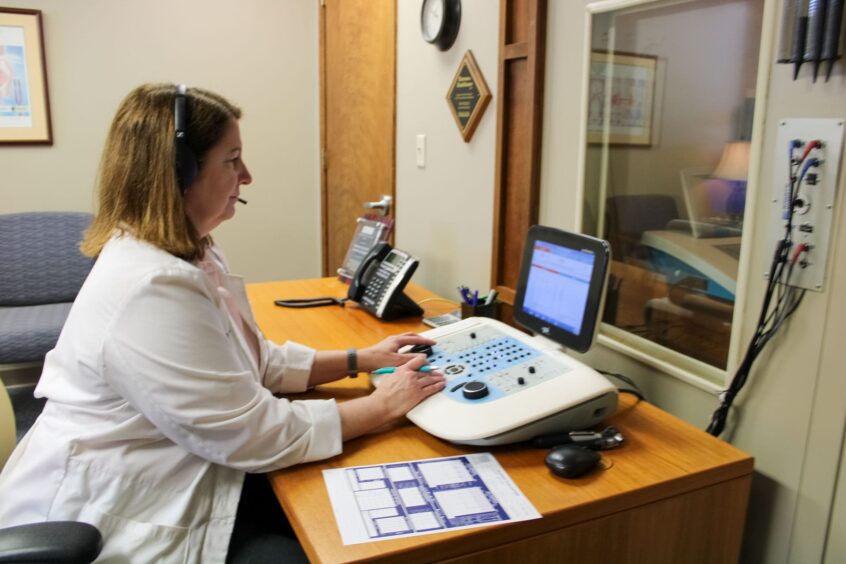According to the Centers for Disease Control (CDC), injuries from falls cost $50 billion every year—a greater burden on the healthcare system than obesity or smoking. If this trend continues, the CDC estimates that approximately 50 million falls will occur annually in adults over age 65 by the year 2030.
Like falls, hearing loss is also very common in individuals older than 60, with prevalence estimated between 33 and 40% in this population. Data from the National Health and Nutritional Examination Survey (NHANES) demonstrated that adults 40-69 years old with hearing loss were at greater risk of falls than their normal-hearing counterparts. Plus, the risk of falling increased 1.4-fold for every 10 decibels of hearing loss.
In the past, the relationship between hearing loss and falling was unclear. Some studies have shown an increased risk for falling in those with hearing loss, while others have not found a significant relationship between the two.
Recent Research Sheds Light on the Connection Between Hearing Loss and Falls
A recent study published in the Journal of the American Geriatrics Society took a different approach to investigating this important issue.
This study differed from others that have looked at this question by limiting the study sample to only those with hearing loss. By doing so, the researchers were able to evaluate the association of hearing aid use and falls independent from the presence of hearing aid use.
Study participants included individuals 60 years and older with hearing loss in both ears who completed the Fall Risk Questionnaire (FRQ). They also answered questions about hearing loss history, hearing aid use and other common fall risk factors. In this cross-sectional study, fall prevalence, as well as fall risk, were compared between hearing aid users and non-users. A separate group of consistent hearing aid users (at least four hours of daily use for more than one year) was also compared with inconsistent/non-users.
Remember, the common denominator in this study was that all participants had hearing loss but not all wore hearing aids. Responses from 299 surveys were analyzed and found 50% reduced odds of experiencing a fall in those who regularly wore hearing aids compared with those who did not. Even after adjusting for age, sex, hearing loss severity and medication usage, those who reported any hearing aid use still had lower odds of falls and lower odds of being at risk for falls than the non-users.
Why Does This Research Matter to You?
With the growing number of older adults and the well-documented burden of falls on the healthcare system, it’s important to understand that treating hearing loss may help prevent falls.
Furthermore, this research showed that those who wore hearing aids for at least four hours a day on average had a lower risk of falling.
The researchers went on to call for healthcare providers to consider adding an in-office hearing screening to their assessments for patients who don’t have a documented hearing loss.
If you think you might have hearing loss, but have never had your hearing evaluated, now might be the time.
A doctoral-level audiologist can provide appropriate guidance based on the outcome of the results of the hearing evaluation. If an individual is diagnosed with hearing loss, there are many highly effective treatment options available today, including prescription or over-the-counter hearing aids.
For anyone whose concerns extend beyond hearing loss to vestibular conditions, Associated Audiologists features the expertise of a vestibular audiologist with extensive training in the field.



